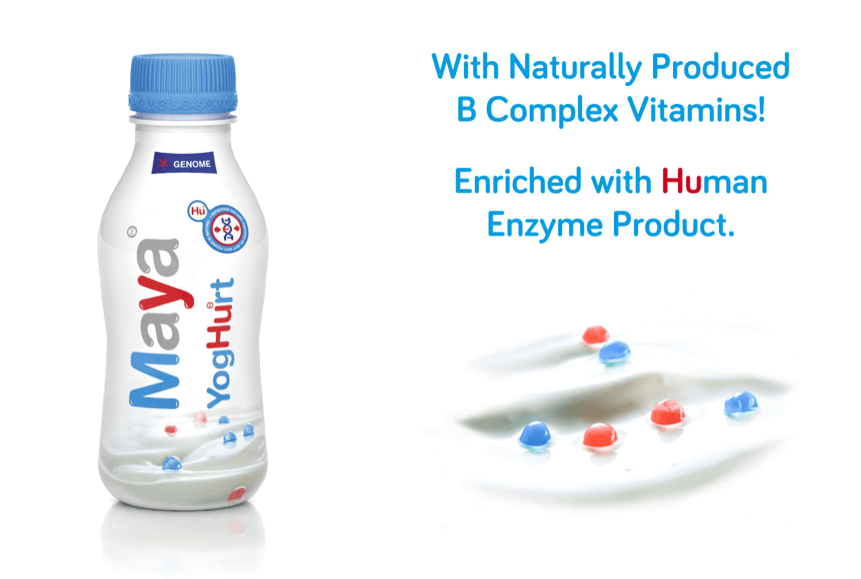Slovenian bioartist Maja Smrekar modified the genome of yeast with a part of her own DNA. This synthetic gene codes for the production of lactic acid, one of the most common food additives. The lactic acid was used to create "Maya YogHurt", a fermented drink that was sampled by visitors to the Kapelica Gallery in Slovenia.
In a series of works entitled Human Molecular Colonization Capacity (Hu.M.C.C.) Smrekar explored the possibilities that our own enzymes might hold as a natural resources. She claims that our body is one of the few "uncolonized biotechnological materials" and could become a "trade tool" based on a system of genetic credit.
This project invites numerous discussions in regards to the global food crisis and the drastic reduction of the value of material goods, and as well as genetic modification in the food industry. It also plays to our fears about the murky origins of our food. Smrekar suggests that we hold off passing judgement on new biotechnologies until we know how they behave and what their benefits are.
We are facing a future where our DNA can be freely manipulated and used in industrial applications. At the moment we cannot judge. However, Smrekar's project raises the important questions: "Who bears responsibility for our body? Are we the owners or just the inhabitants of our bodies?"
Via mayayoghurt.net

Share your thoughts and join the technology debate!
Be the first to comment